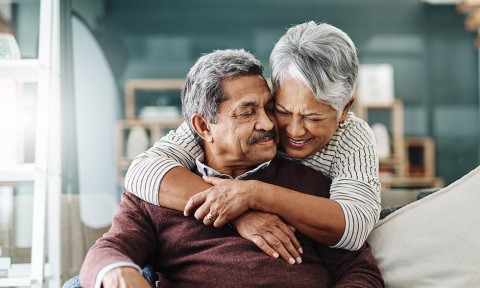
About 1,000 families are affected by out-of-hospital cardiac arrest (CA) each year in the United States. A recent AHA Scientific statement on CA survivorship[1] and prior research[2] indicates co-survivors—close family members of CA survivors—suffer from psychological distress at an equal, if not greater extent, due to witnessing the CA, fear of the unknown, and life/relationship changes after the event. Co-survivors have high levels of caregiver burden and reduced quality of life even at 12 months after CA.
Researchers, led by the N4C NeuroCardiac Comprehensive Care Clinic at Columbia University Irving Medical Center, aimed to prioritize potential patient-, and co-survivor-centric interventions that may alleviate caregiver burden and improve quality of life. A research poster was presented at the American Heart Association Resuscitation Science Symposium on November 5th in Chicago.
The self-administered online survey tool was created by a multi-disciplinary team of researchers, clinicians, survivors, co-survivors, and advocate stakeholders. It was fielded August 2021 - January 2022 to adult CA co-survivors. Researchers used a convenience sample of members of Sudden Cardiac Arrest Foundation, Parent Heart Watch, and a Facebook CA survivors group. Recruitment was conducted via email to 2,055 patients, family members, and advocates of the organizations’ active databases, plus social media posts.
Responses were received from 767 individuals. Of these, 550 responses were eligible for analysis. 57% of co-survivors were between the age of 18-40 years, 65% were women, 51% reported as minority race/ethnicity, 53% were partners or spouses of the cardiac arrest survivors. Co-survivors were providing an average of eight hours of caregiving for an average of five months.
Eight unique interventions geared to co-survivors were tested. Four focused on “education needs” and four focused on “well-being needs.” All eight were presented sequentially on a randomized basis.

In a multivariate model, co-survivors older than 40 years, if they witnessed the CA, assumed the caregiver role within one month of CA, and where survivors were discharged directly to home vs. inpatient rehabilitation, they preferred education-based interventions over interventions designed for their well-being.
Researchers concluded that education-based interventions, particularly information related to their loved ones’ recovery, are top priorities for co-survivors during the early phase of CA survivorship. Future studies should focus on developing and testing these interventions to alleviate caregiver burden.
Authors: 1Jennifer Chap, 2Mary Newman, 3Sabine Abukhadra, 3Danielle Rojas, 3Christine DeForge, 3Isabella Tincher, 4Jasmine Wylie, 5Martha L. Anderson, 6Cindy Marchionda, and 3Sachin Agarwal.
1StrataVerve & BuddyCPR/Co-Survivor/Lay Rescuer; 2Sudden Cardiac Arrest Foundation; 3Columbia University Irving Medical Center; 4FaceBook Sudden Cardiac Arrest Survivors Group; 5Parent Heart Watch; 6Co-Survivor/Lay Rescuer
[1] Sawyer et al. Sudden Cardiac Arrest Survivorship: A Scientific Statement From the American Heart Association. Circulation. 2020 Mar 24;141(12):e654-e685.
[2] Douma, M. J. et. al. What are the care needs of families experiencing cardiac arrest?: A survivor and family led scoping review. Resuscitation. 2021; 168, 119–141.
